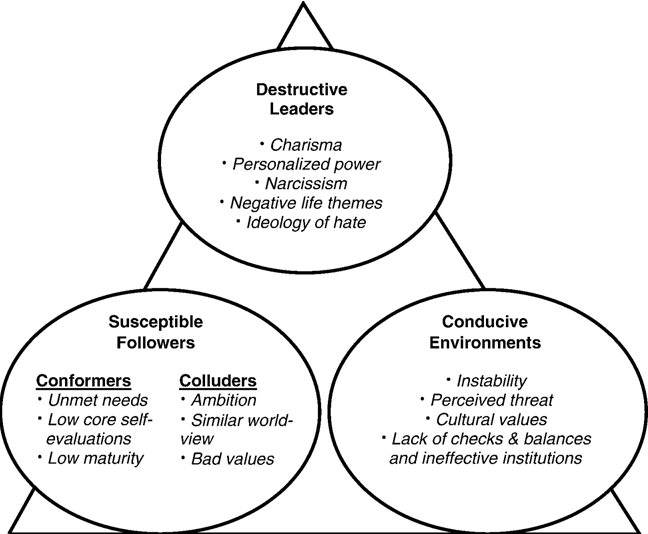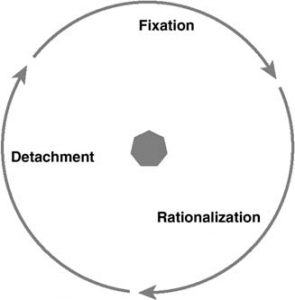These days, it’s easy to become self-involved. So much is coming at us so quickly. We live in a world of speed and busyness in an age of social media, celebrities, and influencers.
These cultural influences are strong, pulling our egos toward a certain way of living that can become superficial and materialistic. We can be obsessed with climbing professionally, with chasing success. And we can take all that we have for granted, as we’re so focused on chasing more.
This may keep us occupied (if not overloaded), but it’s not a recipe for good living. In all the chase, with all its focus on success, we can miss out on one of the great gifts and joys of life: serving.
Service is a remarkable thing because it allows us to help others while also helping ourselves.
The Benefits of Serving Others
There are many benefits of serving and helping others, according to the research. Here are some of the main ones:
Helping others feels good. Researchers call it a “warm glow.” Even small acts of kindness can bring emotional rewards to the helper. (1)
“I don’t think there’s anything as wonderful in life as being able to help someone else.”
-Betty Ford, activist, former U.S. first lady, and founder, Betty Ford Center
Service is a powerful contributor to our happiness, fulfillment, and overall life satisfaction. According to a large and growing body of research, helping others is often associated with and can lead to higher levels of happiness. Volunteering leads to a boost in our mental health and happiness, especially among people who volunteer more often (e.g., at least once a month), and people who volunteered in the last year were more satisfied with their lives.
Service can help our life and work be more meaningful. And it can help us discover our purpose and core values.
Serving others can help us discover who we are. It’s an important part of what I call “discover mode”: learning about who we are (including our core values, strengths, passions, and aspirations) and what we can do in the world.
“The best way to find yourself is to lose yourself in the service of others.”
-Mahatma Gandhi, Indian lawyer and transformational leader
Helping others can help us transcend our egos. When we’re helping others, it’s hard to remain preoccupied with our own petty dramas.
Serving people can help us feel more grateful for what we have. We may begin to glimpse how fortunate or privileged we’ve been. It may give us a sharper perspective.
Serving others can be a powerful source of motivation. If we take the time to discover our core values and excavate our convictions, we’ll find that we long to contribute to some people, groups, or causes. We have a lot of energy to activate if we’ll only get started on it.
Serving other people with commitment and skill can help boost our confidence. As we help and have impact, we develop a greater belief in our capacities and conviction that we can add even more value.
Helping others builds our character. It may help us develop generosity, humility, empathy, trustworthiness, responsibility, loyalty, and even moral excellence.
Helping people can help us heal from deep wounds and traumatic experiences. There’s an intriguing expression: “When you feel sad, serve.” Too often, we get lost in our own wallowing and don’t see how readily we could change the dynamic if we’d only reach out and try to help someone else.
“…if you’re hurting, you need to help somebody ease their hurt. If you’re in pain, help somebody else’s pain. And when you’re in a mess, you get yourself out of the mess helping somebody out of theirs. And in the process, you get to become a member of what I call the greatest fellowship of all, the sorority of compassion and the fraternity of service.”
-Oprah Winfrey, media entrepreneur, philanthropist, and author
Serving people can bring us out of isolation and back into relationship and a sense of belonging in community. This could include spiritual communities that promote service or a focus on something larger than the self.
Serving others can help us create new or stronger friendships. We can befriend the people we’re serving or the people we’re serving alongside. These can become some of the most important relationships in our lives.
Helping others can warm up our cold hearts. Our hearts sometimes take a beating in today’s world. Our heart may be asleep, closed, or cold from pain, suffering, or isolation. Enter the warm glow of serving others.
Service can help us redeem some of the wrongs we’ve done and some of the pain we’ve inflicted on others. Let’s face it: we’ve all made mistakes and hurt people, including our loved ones. Too often, those are the ones we’ve hurt the most. Service can be an agent of redemption in our lives.
Helping others can have positive effects on our own health. According to the research, it can lead to lower stress and inflammation, reduced pain, healthier hearts, and even protection against anxiety, burnout, and depression.
Service can be inspiring and contagious. When people see someone serving others, it summons their better angels and makes them want to join in or follow suit. As this phenomenon spreads, it can help uplift communities.
How to Go About Serving Others
Service doesn’t have to be complicated. In fact, it’s often best when we keep it simple, heart to heart. Still, here are a few tips for going about it:
Developing self-awareness can be a great place to start. If we know our strengths, we can look for ways to use them when serving others, giving us a double win because it feels good to use our strengths on something important. The same holds true for our purpose, values, and passions.
If we pause to consider how we’re uniquely or powerfully qualified or positioned to help some people, groups, organizations, or causes—based on our knowledge, skills, experiences, or even our wounds—it can help us target our service efforts more effectively.
When we take time to discover what people, groups, or causes we feel called to serve, it can elevate our motivation and make it more likely we’ll stick with it.
Pervasive Service
In our book, LIFE Entrepreneurs: Ordinary People Creating Extraordinary Lives, Christopher Gergen and I wrote about something that intentional people who integrate their purpose and passions do well: “pervasive service,” which is “an ethic of contribution as a defining feature of our lives.”
Can we build service into our daily habits? Can we creatively find ways to serve—in ways big and small—our spouse or partner, family, friends, neighbors, colleagues, workplace, and community? What if we walked around with our helping antenna up, scanning for ways to respond to needs around us?
Service and giving shouldn’t be relegated to an occasional good deed—or to an annual tax write-off. What if we looked to bring them into each of our days—thus adding up to a lifetime of contribution? Viewed this way, service can become an organizing principle of our lives, a habit that permeates our personal lives and work and community endeavors.
Ideally, our acts of service evolve into deeper commitments that ripen us and enhance our inner life.
“There are occasions and opportunities for service that will vary throughout anyone’s life. The initial gate is that you understand that that’s a piece of being a full person. It’s a matter of saying yes to the opportunity when it appropriately appears. Every day is a preparation for serving something.”
-Buie Seawell, attorney and professor, University of Denver
Some Cautions about Service
As with many things in life, there are some important nuances and even potential traps here.
First, let’s not make this about giving and expecting something in return. Not everything has to be transactional or come with an expectation or obligation. That just cheapens it.
Second, serving others doesn’t make us better than them. We all have dignity and potential. And we all have ups and downs and our unique context and challenges.
Third, there’s an ego risk that can come with serving. Let’s not let serving morph into a savior syndrome, and let’s not become self-righteous and smug about it.
Fourth, let’s watch out for the trap of being too focused on others—and giving ourselves away in the process. As the flight attendants wisely advise, let’s put on our own oxygen masks first. (See my article, “Are You Focusing Too Much on Others’ Needs.”)
“If takers are selfish and failed givers are selfless, successful givers are otherish: they care about benefiting others, but they also have ambitious goals for advancing their own interests…. Selfless giving, in the absence of self-preservation instincts, easily becomes overwhelming. Being otherish means being willing to give more than you receive, but still keeping your own interests in sight, using them as a guide for choosing when, where, how, and to whom you give.”
-Adam Grant, Give and Take
Conclusion
Service, while remarkable in its own ways and often uplifting, as we’ve seen, doesn’t have to be grandiose and world-changing. Our little acts of contribution can make a real difference day to day and add up over time to big sums.
So, yes, let’s dedicate ourselves to worthy and mighty causes, if we can. Let’s follow in the footsteps of great servants through the ages, if we can. But let’s also focus on what’s right in front of us: Raising our kids as best we can. Holding the door open for someone. Being kind to people we encounter on the street. Thanking the barista with a kind word and a smile. Stopping to see if someone needs help. Giving someone a ride. Checking in on a friend or colleague.
We’re likely to regret it if we don’t build service into our lives. If we do serve and serve often, it’s a beautiful gift both to the world and ourselves—and a way for us to honor the lives we’ve been given.
Reflection Questions
- To what extent are you helping and serving?
- What more could you do?
- What will you start with, right now?
Tools for You
- Traps Test (Common Traps of Living) to help you identify what’s getting in the way of your happiness and quality of life
- Quality of Life Assessment to help you discover your strongest areas and the areas that need work and then act accordingly
- Personal Values Exercise to help you clarify what’s most important to you
- Strengths Search Tool to help you identify your core strengths and integrate them more into your life and work
Related Articles
- “Escaping the Trap of Our Ego”
- “Are You Focused Too Much on Yourself?”
- “Are You Trapped by Success?”
- “Are We More Materialistic than We’d Like to Admit?”
- “Bucket Filler or Bucket Dipper?”
- “The Power of Relationships in Our Lives“
- “Ten Keys to Self-Leadership”
- “On Spirituality and the Good Life“
- “The Urgency of Sustainable Leadership—And the Promise of Social Entrepreneurship”
- “How to Become a Better Servant Leader”
- See also our Servant Leadership Series on the Triple Crown Leadership website
Related Books
- Tom Rath, Life’s Great Question: Discover How You Contribute to the World
- Billy Shore, The Cathedral Within: Transforming Your Life by Giving Something Back
- Adam Grant, Give and Take: Why Helping Others Drives Our Success
- Stephen Trzeciak and Anthony Mazzarelli, Wonder Drug: 7 Scientifically Proven Ways that Serving Others Is the Best Medicine for Yourself
Postscript: Inspirations on Serving Others
- “Life’s most urgent question is, ‘What are you doing for others?’” -Martin Luther King, Jr.
- “It is high time the ideal of success should be replaced with the ideal of service.” -Albert Einstein, German-born theoretical physicist
- “Service is the very purpose of life. It is the rent we pay for living on the planet.” -Marian Wright Edelman, activist for civil rights and children’s rights
- “…taking care of others, helping others, ultimately is the way to discover your own joy and to have a happy life.” -Dalai Lama
- “Not everybody can be famous. But everybody can be great, because greatness is determined by service. You don’t have to have a college degree to serve. You don’t have to make your subject and verb agree to serve. You don’t have to know about Plato or Aristotle to serve. You don’t have to know Einstein’s theory of relativity to serve. You don’t have to know the second theory of thermodynamics in physics to serve. You only need a heart full of grace and a soul generated by love.” -Martin Luther King, Jr.
- “…the only ones among you who will be really happy are those who have sought and found how to serve.” -Albert Schweitzer, humanitarian, philosopher, and physician
- “…when you choose the paradigm of service, looking at life through that paradigm, it turns everything you do from a job into a gift.” -Oprah Winfrey, media entrepreneur, philanthropist, and author
- “A growing body of evidence suggests that the single greatest driver of both achievement and wellbeing is understanding how your daily efforts enhance the lives of others.” -Tom Rath, Life’s Great Question
- “Every man must decide whether he will walk in the light of creative altruism or in the darkness of destructive selfishness.” -Martin Luther King, Jr.
- “Ask not what your country can do for you; ask what you can do for your country.” -John F. Kennedy, former U.S. president
- “I slept and dreamt that life was joy. I awoke and saw that life was service. I acted, and behold, service was joy.” -Rabindranath Tagore, Indian poet, writer, and social reformer
- “Every now and then I think about my own death, and I think about my own funeral. And if you get somebody to deliver the eulogy, tell them not to talk too long…. I’d like for somebody to say some day that Martin Luther King Jr. tried to give his life serving others…. I just want to leave a committed life behind.” -Martin Luther King, Jr.
- “The old… should, it seems, have their physical labors reduced; their mental activities should be actually increased. They should endeavor, too, by means of their counsel and practical wisdom to be of as much service as possible to their friends and to the young, and above all to the state.” -Cicero, De Officiis
(1) Serving others is a form of what researchers call “prosocial behavior” (including giving money to charity, volunteering, sharing food, donating blood or an organ, or otherwise voluntarily helping others). Researchers have discovered that people derive pleasure from helping others. Lara B. Aknin and Ashley V. Whillans found that it matters how people go about helping. Looking at the evidence on helping using self-determination theory, Aknin and Whillans discovered that prosocial behavior is more likely to lead to happiness when people have autonomy and choice over who and how they help, when they see the impacts of their help, and when they have opportunities to connect with people while helping. (Source: Lara B. Aknin and Ashley V. Whillans, “Helping and Happiness: A Review and Guide for Public Policy,” Social Issues and Policy Review, Vol. 15, No. 1, 2021)
“Human beings are exceptionally prosocial.
Not only do we go out of our way to help other people, but we often feel good when we do.”
-Lara B. Aknin and Ashley V. Whillans
++++++++++++++++++++++++++++++
Gregg Vanourek is a writer, teacher, TEDx speaker, and coach on personal development and leadership. He is co-author of three books, including LIFE Entrepreneurs: Ordinary People Creating Extraordinary Lives (a manifesto for integrating our life and work with purpose, passion, and contribution) and Triple Crown Leadership: Building Excellent, Ethical, and Enduring Organizations (a winner of the International Book Awards). Check out his Best Articles or get his monthly newsletter. If you found value in this article, please forward it to a friend. Every little bit helps!











